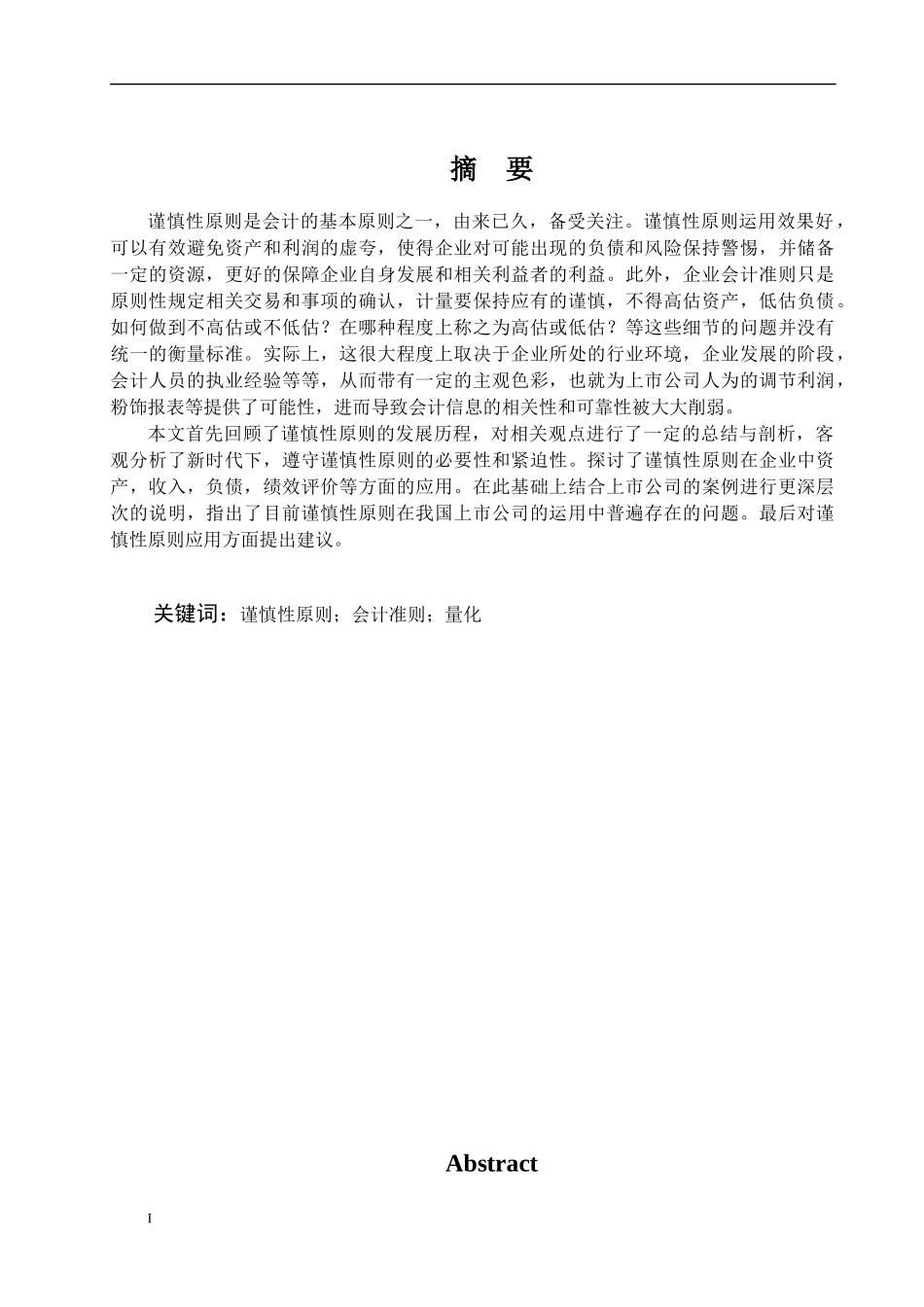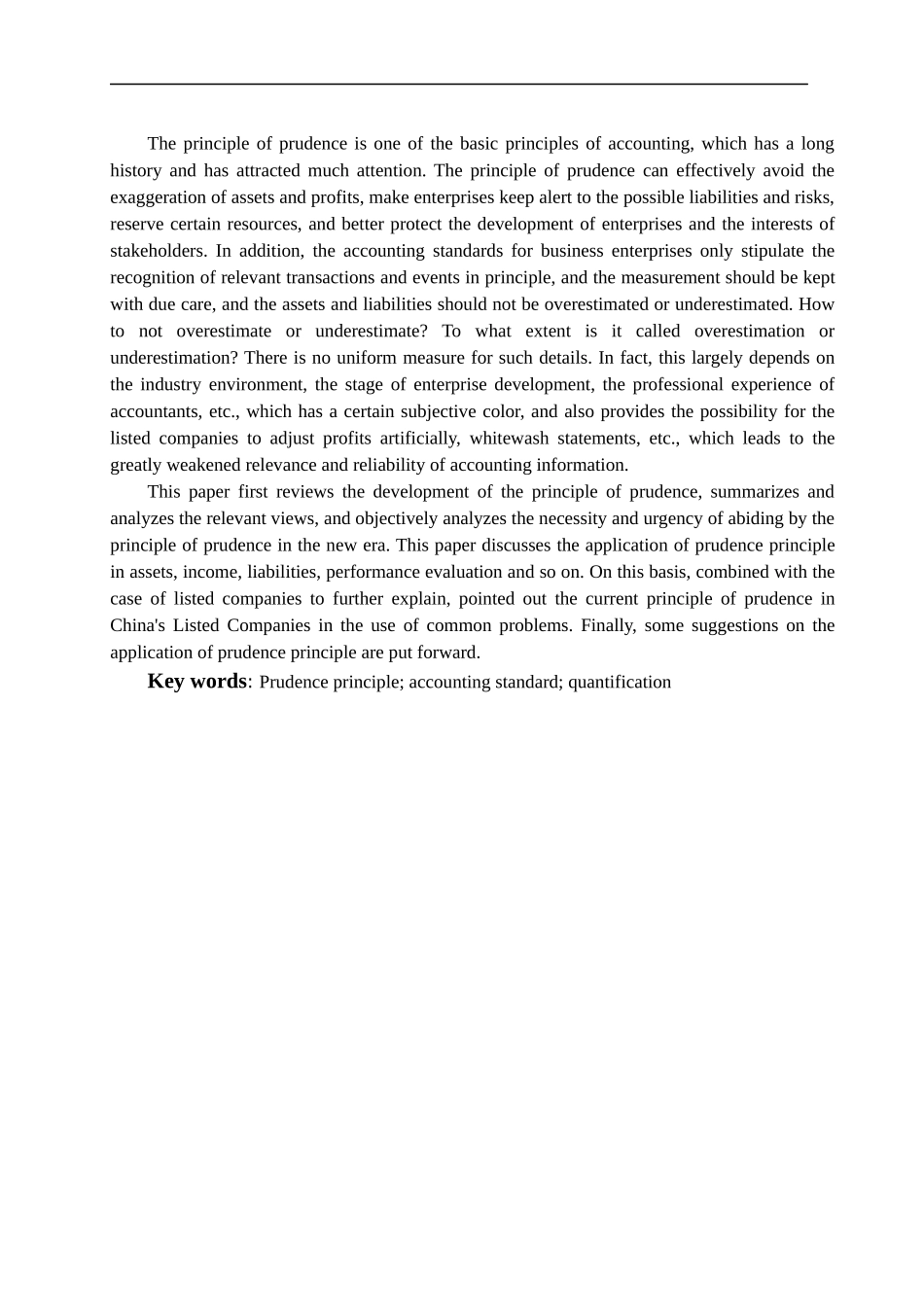摘 要谨慎性原则是会计的基本原则之一,由来已久,备受关注。谨慎性原则运用效果好,可以有效避免资产和利润的虚夸,使得企业对可能出现的负债和风险保持警惕,并储备一定的资源,更好的保障企业自身发展和相关利益者的利益。此外,企业会计准则只是原则性规定相关交易和事项的确认,计量要保持应有的谨慎,不得高估资产,低估负债。如何做到不高估或不低估?在哪种程度上称之为高估或低估?等这些细节的问题并没有统一的衡量标准。实际上,这很大程度上取决于企业所处的行业环境,企业发展的阶段,会计人员的执业经验等等,从而带有一定的主观色彩,也就为上市公司人为的调节利润,粉饰报表等提供了可能性,进而导致会计信息的相关性和可靠性被大大削弱。本文首先回顾了谨慎性原则的发展历程,对相关观点进行了一定的总结与剖析,客观分析了新时代下,遵守谨慎性原则的必要性和紧迫性。探讨了谨慎性原则在企业中资产,收入,负债,绩效评价等方面的应用。在此基础上结合上市公司的案例进行更深层次的说明,指出了目前谨慎性原则在我国上市公司的运用中普遍存在的问题。最后对谨慎性原则应用方面提出建议。关键词:谨慎性原则;会计准则;量化AbstractIThe principle of prudence is one of the basic principles of accounting, which has a long history and has attracted much attention. The principle of prudence can effectively avoid the exaggeration of assets and profits, make enterprises keep alert to the possible liabilities and risks, reserve certain resources, and better protect the development of enterprises and the interests of stakeholders. In addition, the accounting standards for business enterprises only stipulate the recognition of relevant transactions and events in principle, and the measurement should be kept with due care, and the assets and liabilities should not be overestimated or underestimated. How to not overestimate or underestimate? To what extent is it called overestimation or underestimation? There is no uniform measure for such details. In fact, this largely depends on the industry environment, the st...












